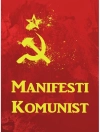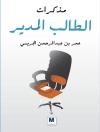Membranes already have important applications in artificial organs, the processing of biotechnological products, food manufacture, waste water treatment, and seawater desalination. Their uses in gaseous mixture separations are, however, far from achieving their full potential. Separation of air components, natural gas dehumidification and sweeting, separation and recovery of CO2 from biogas, and H2 from refinery gases are all examples of current industrial applications. The use of membranes for reducing the greenhouse effect and improving energy efficiency has also been suggested. New process intensification strategies in the petrochemical industry have opened up another growth area for gas separation membrane systems and membrane reactors.
This two volume set presents the state-of-the-art in membrane engineering for the separation of gases. It addresses future developments in carbon capture and utilization, H2 production and purification, and O2/N2 separation. Topics covered include the: applications of membrane gas separation in the petrochemical industry; implementation of membrane processes for post-combustion capture; commercial applications of membranes in gas separations; simulation of membrane systems for CO2 capture; design and development of membrane reactors for industrial applications; Pd-based membranes in hydrogen production; modelling and simulation of membrane reactors for hydrogen production and purification; novel hybrid membrane/pressure swing adsorption process for gas separation; molecular dynamics as a new tool for membrane design, and physical aging of membranes for gas separations.
Volume 2 looks at problems combined with membrane reactors.
İçerik tablosu
Modelling and simulation of membrane reactors for hydrogen production and purification;
Pd-based membranes in hydrogen production;
Membrane reactors in hydrogen production;
Design and development of membrane reactors for industrial applications;
Polarization and CO inhibition in Pd-Based Membranes;
Carbon molecular sieve membranes for CO2 separation;
Perovskite Membranes for high temperature oxygen separation;
Zeolite membrane for the treatment of gases;
Engineering aspects of MIEC hollow fibre membranes for oxygen production;
New metrics in membrane gas separation.
Yazar hakkında
Enrico Drioli is a Professor Chairman of the Section on Membranes for the European Federation of Chemical Engineering. is research activities focus on membrane science and engineering. He is the recipient of numerous awards and is active in many international societies, scientific committees, editorial boards, and international advisory boards. Professor Drioli is currently Chairman of the European Federation of Chemical Engineering Section on Membranes. He is also the author of more than 600 scientific papers and 18 patents in the field of membrane science and technology.
Giuseppe Barbieri is a researcher at the Institute on Membrane Technology of the National Research Council of Italy (ITM-CNR). He has co-authored more than 50 papers in peer-reviewed journals, various chapters in books and numerous presentations at scientific conferences, workshops, and congresses in the field of membrane science and engineering.
Dr Barbieri is responsible for, or has participated in, numerous research and formation projects funded by the: European Union; Italian Ministry of Foreign Affairs; Italian Ministry of Education and Research; National Research Council of Italy, the Calabria Region, and various private companies. He is also a Professor at the University of Calabria Faculty of Science and an Invited Professor at the University of Strasburg School of Engineering. His particular interests lie in fuel processing and CO2 separation/concentration, by means of membranes, for energy production from fossil and bio fuels.












